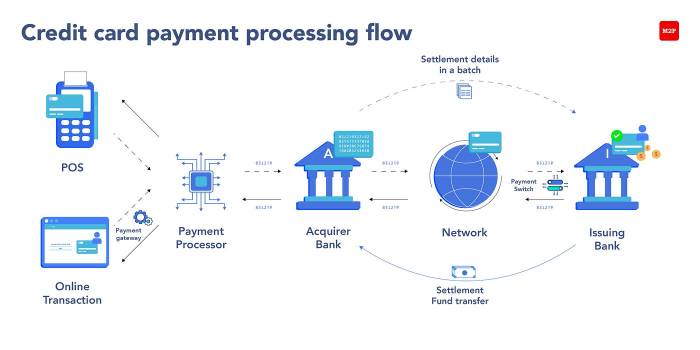Using Credit Card Rewards to Offset Business Costs
Using credit card rewards to offset business operating costs offers a compelling strategy for savvy business owners. This approach, when implemented strategically, can significantly reduce expenses and improve profitability. By understanding the various rewards programs available, maximizing rewards earned on business expenses, and navigating the tax implications, businesses can unlock substantial financial benefits. This exploration delves into the practical applications, potential pitfalls, and best practices for leveraging credit card rewards to their fullest potential.
This guide will cover various credit card reward programs, strategies for maximizing rewards on business expenses, methods for redeeming rewards for specific business costs, and the associated tax implications. We will also examine potential challenges, explore successful implementation case studies, and provide best practices for responsible credit card usage. The goal is to equip businesses with the knowledge to make informed decisions about integrating credit card rewards into their financial strategies.
Redeeming Rewards for Business Costs: Using Credit Card Rewards To Offset Business Operating Costs

Leveraging credit card rewards for business expenses can significantly reduce operating costs. Understanding the various redemption methods and processes is key to maximizing this benefit. This section details how to effectively redeem rewards for common business expenditures.Redeeming credit card rewards typically involves several methods, each with its own advantages and disadvantages. The most common options include statement credits, gift cards, travel bookings, merchandise, and cash back.
The best choice depends on your specific business needs and the rewards program offered by your credit card.
Statement Credit Redemption, Using credit card rewards to offset business operating costs
Statement credits directly reduce your outstanding credit card balance. This is generally the most straightforward method, particularly for irregular expenses. To redeem for a statement credit, you typically navigate to the rewards section of your credit card’s online portal. There, you’ll find an option to apply your accumulated points or miles towards your statement balance. The process usually involves selecting the amount of rewards you wish to redeem and confirming the transaction.
Be aware that minimum redemption thresholds often apply. For example, you might need 10,000 points to redeem a $100 statement credit. Once processed, the credit will be reflected on your next billing statement.
Gift Card Redemption
Redeeming rewards for gift cards offers flexibility. Many programs allow you to choose from a wide array of retailers, enabling you to cover expenses like office supplies or software purchases. The redemption process usually involves selecting the desired retailer and gift card denomination within your online rewards portal. The gift card will then be either mailed to you or made available electronically.
A potential drawback is the limited selection of retailers compared to using statement credits directly. For instance, while you might find a gift card for Staples, a smaller, specialized office supply store might not be an option.
Redeeming Rewards for Specific Business Expenses
Applying rewards to specific business expenses such as travel, office supplies, or software requires a more nuanced approach. While statement credits offer a general reduction in costs, targeted redemption options may be available through partnerships between your credit card issuer and specific vendors. For example, some cards offer bonus rewards points for travel booked through their affiliated travel portals, allowing for a more significant discount on flights or accommodation.
Similarly, some programs might partner with software companies, allowing you to use your rewards points to purchase licenses or subscriptions. Carefully review your credit card’s rewards program details to identify any such partnerships.
Tax Implications of Using Credit Card Rewards

Using credit card rewards to offset business expenses can offer significant financial advantages, but it’s crucial to understand the tax implications to ensure compliance and maximize benefits. The IRS views rewards as income, and how this income is taxed depends on the nature of the reward and how it’s used.The IRS generally considers credit card rewards as taxable income if they are redeemed for cash or goods and services.
This means that the value of the rewards you receive is added to your business income and is subject to income tax. However, the specific tax treatment can vary depending on the type of reward and how it’s utilized within your business operations.
Taxable Income from Rewards Redemption
When you redeem credit card rewards for cash back, gift cards, or other forms of payment directly applicable to business expenses, the value of those rewards is considered taxable income. This is because the rewards represent a reduction in your business’s operating costs, effectively increasing your profit. For example, if you redeem 10,000 points for $100 in cash back, that $100 is added to your business’s gross income and taxed accordingly.
Accurate record-keeping is essential; meticulously track all rewards earned and redeemed, along with their corresponding values. This information will be crucial when filing your business tax return. Failure to report this income can lead to penalties and interest charges from the IRS.
Deductibility of Business Expenses Paid with Rewards
While the value of the rewards themselves is taxable income, the business expenses paid using those rewards are still deductible. This means that you can deduct the cost of the goods or services you purchased even though you used rewards to pay for them. However, you cannot deduct the value of the rewards themselves a second time. The deduction is for the expense, not the reward.
For instance, if you use $100 in rewards to pay for office supplies, you can still deduct the $100 spent on office supplies as a business expense on your tax return. The $100 in rewards is already accounted for as taxable income.
Accounting for Credit Card Rewards in Business Records
Proper accounting for credit card rewards is critical for accurate tax reporting. Maintain detailed records of all rewards earned, their value, and how they were redeemed. This information should be consistently logged in your business’s accounting system, whether it’s a simple spreadsheet or a more sophisticated accounting software program. Separate the accounting of rewards from other business income streams.
This separation helps in clear identification of taxable income generated from rewards and prevents confusion during tax preparation. Consider using a dedicated account or category within your accounting software specifically for tracking rewards and their redemption. This detailed record-keeping will simplify the tax preparation process and minimize the risk of errors or omissions.
Effectively utilizing credit card rewards to offset business operating costs requires a strategic and disciplined approach. By carefully selecting the right credit cards, maximizing rewards accumulation through smart spending, and understanding the tax implications, businesses can achieve substantial savings. While potential challenges exist, such as managing debt and navigating complex redemption processes, the potential financial benefits are significant.
Ultimately, responsible credit card management coupled with a well-defined rewards strategy can contribute substantially to a business’s bottom line.
Commonly Asked Questions
What are the potential risks of using business credit cards for rewards?
Potential risks include high interest rates if balances aren’t paid in full, accumulating debt, and the potential for unforeseen fees. Careful budgeting and responsible spending are crucial.
Can I use rewards for personal expenses?
Generally, rewards earned on a business credit card should be used for business expenses to avoid tax complications. Using rewards for personal expenses may have tax implications depending on your jurisdiction.
How do I track my credit card rewards for tax purposes?
Maintain detailed records of all credit card transactions, including those redeemed for rewards. Categorize these transactions accurately for your business accounting and tax reporting.
What if I don’t have enough rewards to cover a large business expense?
You can combine rewards from multiple cards or use rewards to offset smaller expenses incrementally. Consider combining rewards with other cost-saving strategies.

